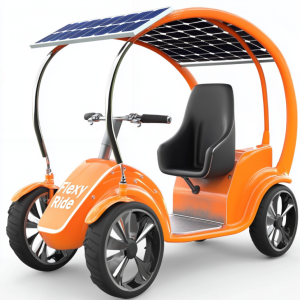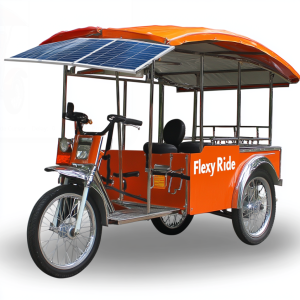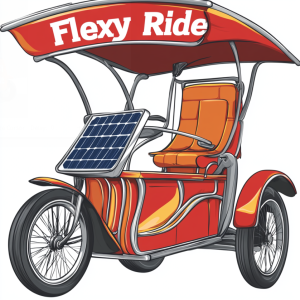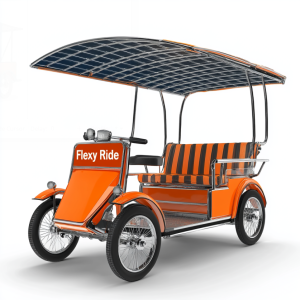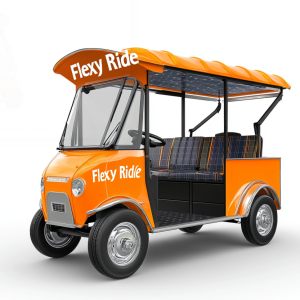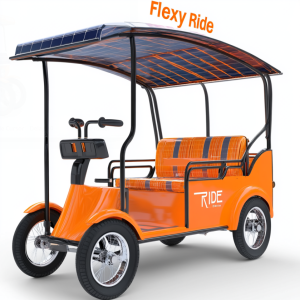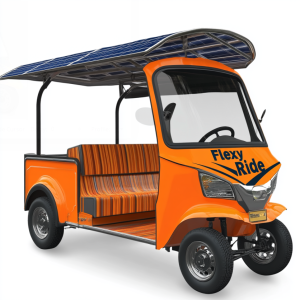Transportation is the lifeline of economic growth, social mobility, and urban development.

Transportation is the lifeline of economic growth, social mobility, and urban development. In many parts of the world, reliable and affordable transportation is a basic necessity. However, in regions with harsh climates, difficult terrains, and limited infrastructure, traditional transportation methods fail to meet the needs of the people.
At Flexy Ride, we are committed to revolutionizing mobility with solar-powered and electric transport solutions that provide a sustainable, efficient, and cost-effective alternative. Whether in crowded urban centers, rural villages, or remote desert regions, our mission is to ensure that everyone has access to reliable transportation, regardless of location or environmental conditions.
In regions where traditional vehicles struggle with rough roads, heat, and high fuel costs, our vehicles provide an efficient and sustainable alternative.
An ideal solution for affordable, shared mobility in cities and rural areas, helping people commute efficiently while reducing congestion.
A practical, zero-emission solution for urban and suburban areas, our electric rickshaws offer reliable mobility without polluting the environment.
Perfect for off-grid transportation and areas with unreliable fuel supply, our solar rickshaws operate on renewable energy and require minimal maintenance.
The transportation sector is one of the largest contributors to pollution and climate change, accounting for nearly 25% of global CO₂ emissions. Additionally, in many parts of the world, fuel prices are rising, public transportation is limited, and millions of people struggle to access essential services due to poor mobility infrastructure.
Key Problems in Traditional Transportation:
In deserts, mountains, off-grid areas, and conflict zones, mobility is even more challenging. Conventional transportation methods, such as cars, motorcycles, and buses, struggle to operate efficiently in such conditions due to:

High temperatures can cause engine failures, increase fuel consumption, and shorten vehicle lifespan.
Standard vehicles sink in sand, get stuck in mud, or break down due to poor road conditions.
In remote areas, fuel supply is unreliable and maintaining fuel-powered vehicles is expensive.
Many regions lack proper roads, fueling stations, and charging facilities, making transportation difficult.
Many people cannot afford private vehicles and require cost-effective public or shared transportation.
Electric mobility is transforming the way people commute, do business, and access essential services. With advancements in battery technology and efficient electric motors, electric vehicles (EVs) are now a viable solution for areas that previously relied solely on fuel-powered transport.
Why Electric Transportation Matters in Harsh Conditions:
Flexy Ride’s electric transport solutions are tailored for the unique needs of Middle Eastern and remote communities, ensuring accessibility, affordability, and sustainability.


Solar-powered transportation uses photovoltaic (PV) panels to capture sunlight and convert it into energy, which is stored in high-capacity batteries. This enables vehicles to operate without reliance on fuel or external electricity sources.
